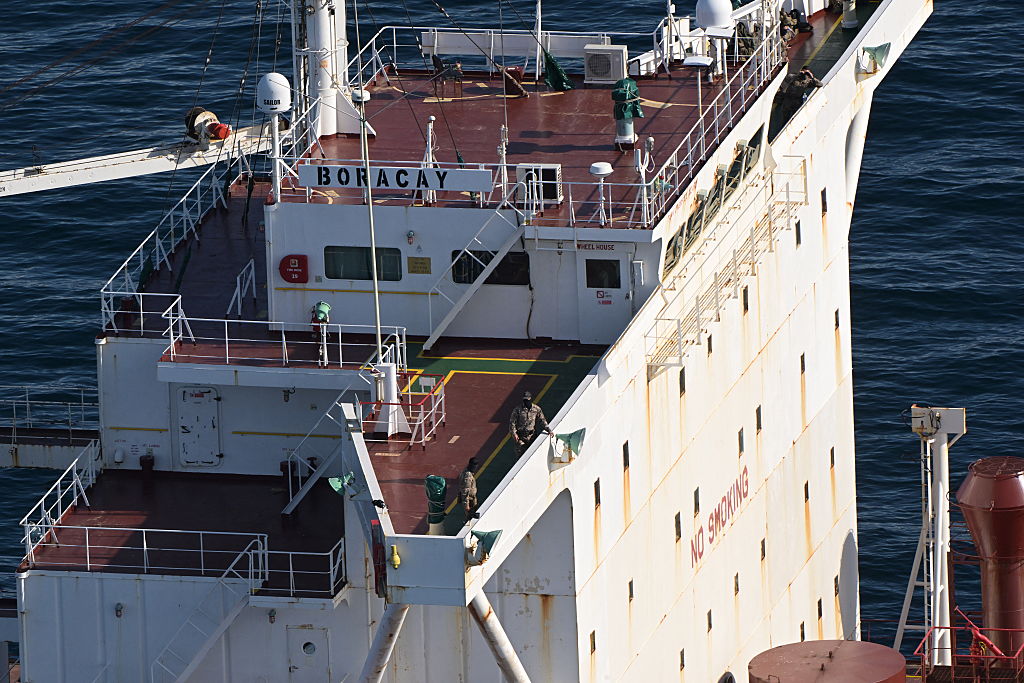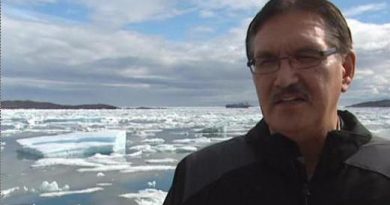Sanctions-evading Russian oil ships could pollute the Arctic, PM’s adviser warns

Some of Canada’s allies are praising Ottawa’s work on preventing Russia from smuggling oil through concealed ships – ships that Ottawa fears could someday unleash an environmental cataclysm in the Arctic.
Canada and its allies have blacklisted more than 400 unregistered ships – known as shadow vessels – in just six months.
The effort aims to starve Russia of funding for its war on Ukraine while preventing leaky ships from one day compromising Canada’s Arctic environment.
“The idea of illegal, substandard, uninsured vessels transiting through High North and Arctic waters was, is, and remains a terrifying prospect,” said David Angell, a foreign and defence policy adviser to Prime Minister Mark Carney, during a panel hosted by the Polish Embassy in Ottawa on Oct. 10.
The issue is becoming more pertinent to Canada due to climate change in the Arctic, he said.
Sanctioned ships re-enter system under new name
Global rules require ships to be registered to a country whose laws and tax codes apply. Russian ships have swapped their flags for a wide range of countries, said Elzbieta Kaca, an analyst at the Polish Institute of International Affairs.
“They can easily re-enter the system even if they are sanctioned, under a new name, under a new flag and under new ownership,” she told the Oct. 10 panel.
Russia has sought for years to evade sanctions western countries put in place after its initial 2014 invasion of Ukraine and its full-scale invasion in 2022.
Those sanctions include a price cap on Russian oil. G7 nations and others enforce the price cap by preventing companies from insuring or providing any other assistance to ships which transport Russian petroleum products, unless the price per barrel is below the cap.
Anna Kostrzewa-Misztal, a Polish foreign ministry senior official who focuses on Russia, said Moscow responded by using unregistered ships or ships registered to other countries – a shadow fleet.
“The problem appeared immediately after the price cap was introduced,” she told the Oct. 10 panel.
She said Canada pushed its G7 peers to crack down on this shadow fleet and this “wonderful collaboration” has undercut Russia’s efforts to evade sanctions.
“It wouldn’t be possible without Canada and without the G7,” she said.
“I’m absolutely convinced and sure that you are such an important pillar of this logic, of these dynamics.”
Maritime surveillance, intelligence sharing to tackle sanctions evasion
The shadow fleet’s use of GPS jamming is a particular concern for Finland, because tankers trying to evade detection can accidentally collide with passenger or commercial ships. Russian tankers leaving St. Petersburg can come close to Helsinki, Stockholm and Copenhagen.
Russia warns west
Moscow insists it’s abiding by global rules despite numerous documented incidents. Russia’s foreign ministry argues western countries are trying to limit its access to international waters.
Diminishing volume of oil, oil products from shadow fleet
Related stories from around the North:
Canada: Grounded cargo ship successfully refloated in Canadian Arctic: company, Eye on the Arctic
Denmark: Denmark, Greenland agree to build naval wharf in Nuuk amid growing Arctic focus, Eye on the Arctic
Finland: Finland pushes EU drone wall as northern countries’ security investments expand, Eye on the Arctic
Iceland: Europe’s Von der Leyen strengthens Arctic security ties with Iceland during visit, Eye on the Arctic
Russia: New UK sanctions target Putin’s main funder of war, The Independent Barents Observer
United States: U.S. Coast Guard monitors Chinese ships in Arctic waters…again, Eye on the Arctic
- See the latest territorial election results in Nunavut
- Europe’s top rights court rejects climate challenge against Norway’s Arctic oil



